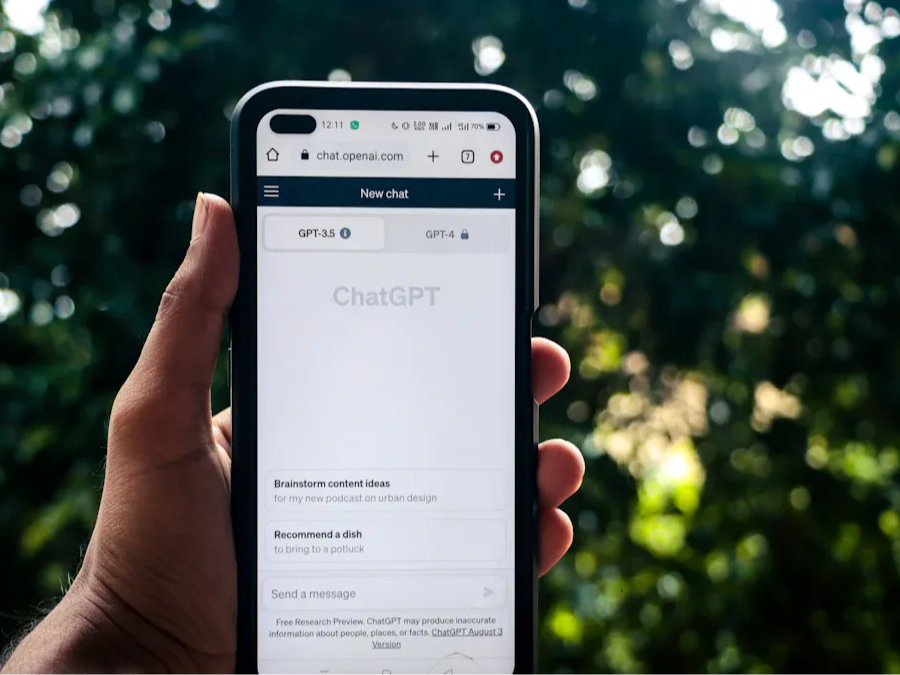AI Therapy Is More Than a Trend—It’s a Growing Industry
The worldwide mental health epidemic coupled with exponential development in artificial intelligence has established a new frontier: AI therapy. The market for artificial intelligence in the field of mental well-being worldwide stood at USD 1.14 billion in 2022 and has a compound annual growth rate (CAGR) of 37.2% from 2023 through 2030, reports Grand View Research.
A study released in The Lancet Digital Health indicated also that AI tools equaled the performance of human therapists in some low-severity psychological interventions, particularly on aspects related to mood monitoring and CBT exercises and guided journaling.
With rising investment, expanding research and improving user adoption, AI therapy can no longer be regarded as a novelty—it’s redefining the future of emotional well-being.
The Rise of AI in Mental Health Support
AI development in the area of mental health has advanced from limited bots of the 1960s era like ELIZA to sophisticated tools like ChatGPT, Woebot, and Wysa today. These ones are not merely script-driven responders anymore; they can mirror empathy and even embrace approaches like Cognitive Behavioral Therapy (CBT). Using natural language processing (NLP), they build conversations that sound surprisingly natural.
Why AI Therapy Is Becoming More Popular
Availability: AI therapy resources can be accessed 24/7 without having an appointment, making assistance as easy as possible.
Affordability: Numerous platforms cost little or nothing at all. All you require is a computer or smartphone—no costly therapy sessions necessary.
Anonymity: If you're worried about privacy, AI chatbots provide a non-judgmental space. Unlike speaking to a human being, you don't need to question whether your secret will be revealed.
Scalability: Thousands of simultaneous conversations can be conducted by AI, as compared to any single therapist who would be unable to reach even a fraction of those numbers.
For a wider overview of trends in digital tools for mental health, see this report from CB Insights.
How Does AI Therapy Work?
Emotionally intelligent chatbots are redefining access to mental well-being services. The bots look for patterns of speech pointing toward feelings of stress, sadness, or anxiety—usually through tone, vocabulary, and patterns of communication. If a pattern can be sensed, the chatbot uses responses designed to simulate emotional intelligence and empathy. Wysa and Woebot apps were profiled by TechCrunch and lauded for their speedy and useful assistance at a time when it is needed.
Common Platforms
- Woebot – A clinically researched chatbot grounded on CBT. It provides users with guided evidence-based exercises aimed at enhancing emotional well-being
- Wysa – Provides AI-driven chats and allows customers the flexibility of speaking to a licensed human therapist as well.
- Replika – Initially developed as a “virtual friend” simulation software, but now mainly used for emotional support and companionship.
- ChatGPT – Although not a therapeutic tool per se, numerous individuals engage in self-reflection, journaling, or emotional processing through a conversational means utilizing it.
Pros of AI Therapy
- Instant Availability
Overwhelmed at 2 a.m.? No need to worry. Unlike conventional counseling, AI-powered services operate 24/7—just grab your phone or computer and speak freely. - Non-Judgmental Listening
AI chatbots do not judge, interrupt or hold human prejudices. They offer a secure, unbiased space where individuals can give their opinions freely without fear of ridicule or judgment. - Affordability
Mental health treatment may be costly and inaccessible for some. AI therapy presents a less expensive—or even complimentary—option for budget-friendly consumers. - Expanded Accessibility
For those in remote or underserved communities where human therapists might be inaccessible, AI platforms can be the sole means of emotional support available. Location is no longer a hindrance. - Personalized Support
Certain AI tools learn from your history and tailor their responses according to your communication habits and emotional trajectories. Gradually, this builds a more personalized and supportive experience.
As the World Economic Forum observes, AI is quickly changing the way the world accesses mental health care—bringing it to those who need it most at the time they need it most.
Cons of AI Therapy
- Lack of Empathy: AI may speak in caring words but is not empathetic or sensitive to human experience at a deep level.
- Context Blindness: Chatbots can misinterpret sarcasm, cultural context, or warning signals and that can be perilous.
- No Professional Accountability: Unlike licensed therapists, developers of AI are not held accountable under professional therapeutic standards.
- Privacy and Data Risks: The sensitive data disclosed to bots may be leaked through breaches or abused. The APA addresses most of those ethical risks.
- Misdiagnosis Risk: Users can misinterpret AI recommendations as professional advice and may thus delay critical intervention.
These issues highlight the necessity of applying AI as a tool — not a substitute — for clinical professional care. Certain users misuse it as clinical advice.
Frequently Asked Questions (FAQ)
Is AI therapy truly beneficial when dealing with depression or anxiety?
AI-powered therapy tools such as Woebot and Wysa apply CBT concepts in order to assist individuals in coping with stress, anxiety, and mild depression. They may offer emotional comfort and exercises but not as a substitute for clinical treatment or diagnostics.
Is sharing personal information on a chatbot secure?
Most legitimate sites utilize encryption and data protections policies. Nothing can be 100% secure, however. Make sure you review the privacy policy and avoid giving away extremely sensitive information unless the site has full disclosure and protection practices in place.
How is AI different from a real therapist?
AI provides speed, affordability, and accessibility but not human empathy, nuanced understanding, and clinical responsibility. Human therapists are necessary for doing deep emotional work or dealing with trauma.
Is ChatGPT for advising on mental health advisable?
ChatGPT can offer general emotional support or assist in journaling and reflection. It’s not trained or licensed to provide mental health counseling, however. It should not be utilized as a substitute for professional advice.
Can AI ever be a long-lasting solution?
For a few individuals, AI therapy can be a steady system of support. For others, it can be a temporary solution or complement to in-person therapy. The ideal application remains a mix—AI for everyday supporting and humans for multifaceted care.
Conclusion: The Future Is Collaboration, Not Competition
AI is not here to take the place of therapists. It's here to assist them—and us. By being transparent, having ethical monitoring, and well-defined boundaries, emotional chatbots can be a useful contributor to well-being.
Nonetheless, at the heart of healing is what cannot be imitated by AI: human connection.
As the technology develops, the question isn't whether or not AI will dominate therapy. The question should be, "How can we responsibly utilize it for betterment of all's mental well-being?"








